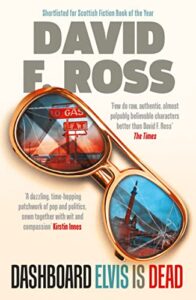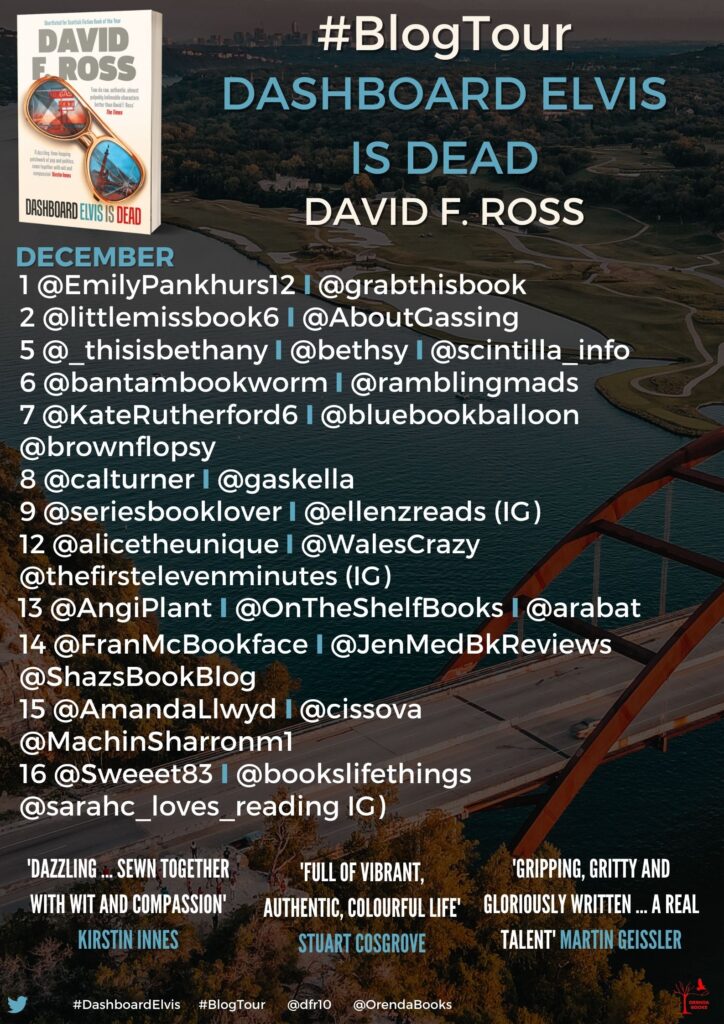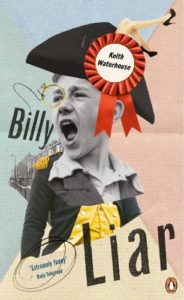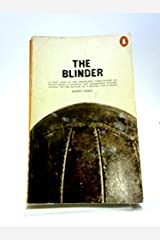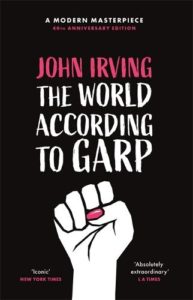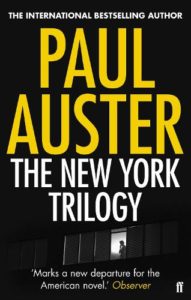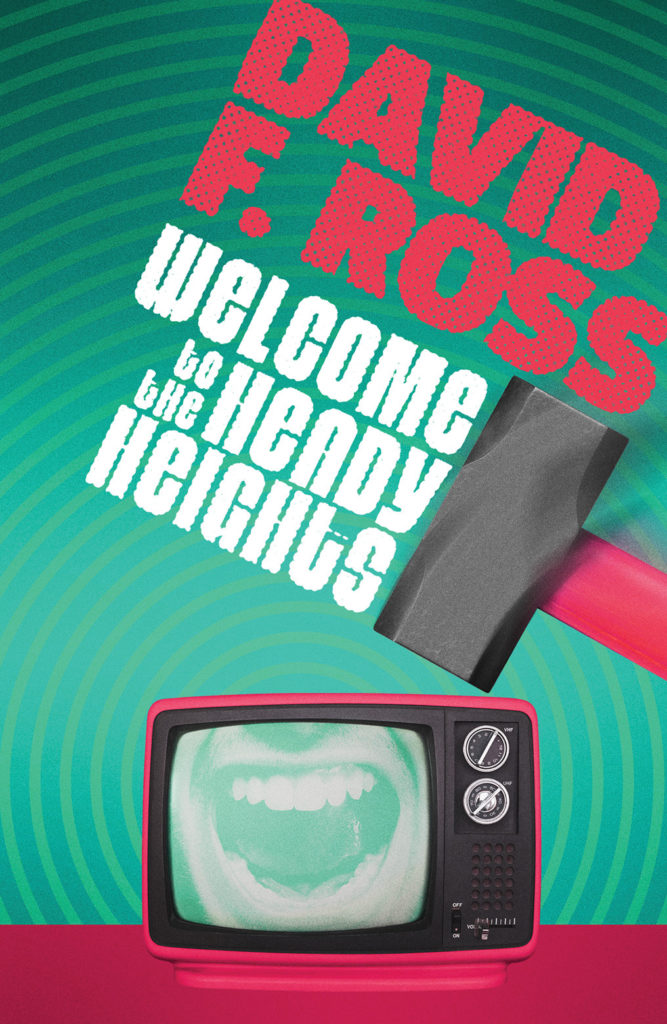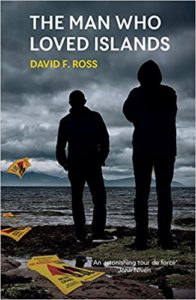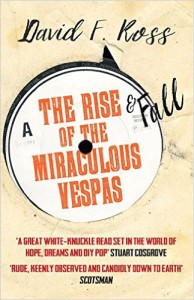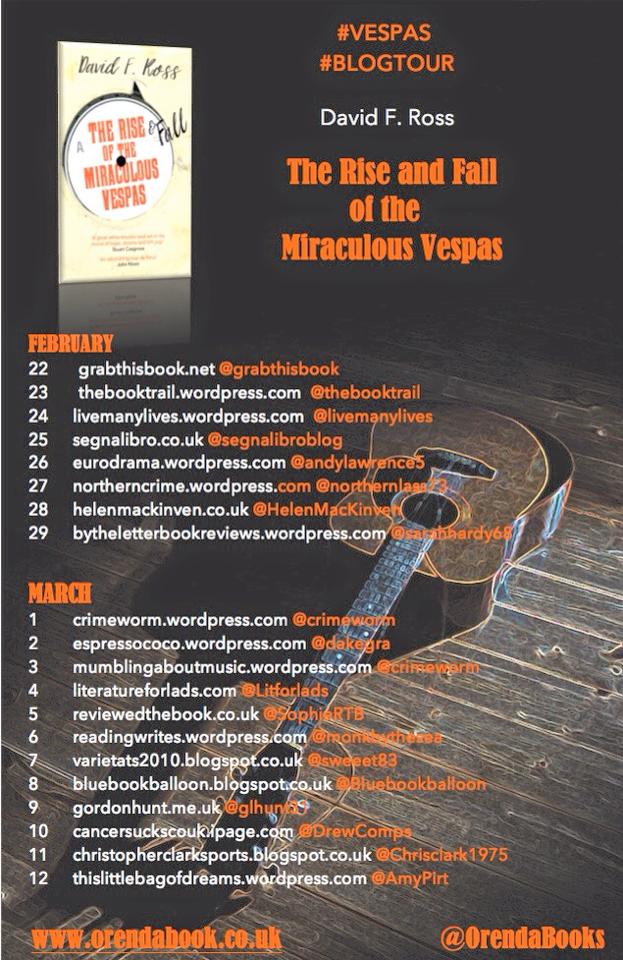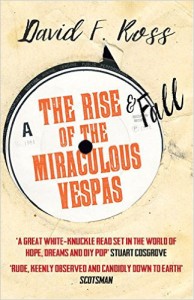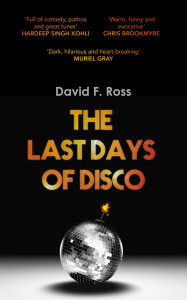Dashboard Elvis is Dead – David F Ross
I received a review copy from the publisher, Orenda Books, ahead of this blog tour post. My thanks to Orenda Books and to Anne Cater of Random Things Blog Tours for the opportunity to help open the tour for Dashboard Elvis is Dead.
When David F Ross writes a new novel I never know what to expect. But with Dashboard Elvis is Dead I don’t think I could ever anticipated the journey he takes his readers on. The story begins in Glasgow (a location I’ll admit I was expecting to feature) but not the Glasgow cafe and not with an American character taking the lead. Jude is looking for a quiet place so it’s not surprising that one of Glasgow’s own decides to sit with her and begin a (very one sided) conversation. David F Ross is very good at nailing the Glasgowisms of his characters and from these opening scenes his pinpoint observational humour comes to the fore.
We don’t linger long in Glasgow as events soon take us back in time and across the Atlantic Ocean to an 80s America where Jude is still a schoolgirl and finding life with her mother rather challenging. Jude’s life is about to take her places she never could have envisaged but before the rollercoaster of shock and upset is an unexpected and very welcome friendship with the school football star. He is the epitomy of the all American high school quarterback and Jude is a mixed race quiet girl – they keep their friendship a secret so when it is suddenly and tragically ended nobody can know the extent of Jude’s upset. It’s a harrowing and beautifully written delve back in time and sets the tone of the novel. Expect drama, emotional turmoil and don’t expect fairy tale endings.
As Jude leaves home and starts a journey to the bright city lights we meet The Hypetones. A Scottish breakthrough band who are embarking on a massive journey to the US to make their fortune and become the next big thing. Except they probably wont and their journey is being paid for on a shoestring budget which will test the patience of the musicians and their travelling companions. Wickedly funny, you cannot help but feel sorry for these young men as nothing seems to be going their way. But how I loved reading about their introduction to America and its cheap hotels and glitzy clubs.
Dashboard Elvis is Dead is a story which will unfold over a number of decades. An emotional journey which also spans different continents and will show how the lives of the central characters change as they grow and adapt to the world around them. David F Ross is one of the best at capturing characters and breathing life, humour and humanity into them so his readers cannot help but become engaged in their stories. It’s a wonderful read.
I wasn’t able to predict where the story was heading and I wasn’t prepared for how much I would become invested in the book either. I generally skim read stories and fly through them when I get started. I didn’t do that in this case. My reading slowed, I was taking in much more detail and I got much, much more back from the book as a result. Time with this book was time very well spent. It’s a reading treat – treat yourself when it releases next week.
Dashboard Elvis is Dead is published by Orenda Books and releases in paperback, digital and audiobook format on 8 December 2022. You can order a copy here: https://www.amazon.co.uk/gp/product/B0B4Z6PBX3/ref=dbs_a_def_rwt_bibl_vppi_i0
